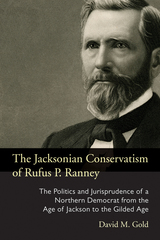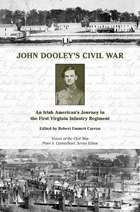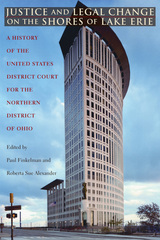3 start with J start with J

Ohio’s Rufus P. Ranney embodied many of the most intriguing social and political tensions of his time. He was an anticorporate campaigner who became John D. Rockefeller’s favorite lawyer. A student and law partner of abolitionist Benjamin F. Wade, Ranney acquired an antislavery reputation and recruited troops for the Union army; but as a Democratic candidate for governor he denied the power of Congress to restrict slavery in the territories, and during the Civil War and Reconstruction he condemned Republican policies.
Ranney was a key delegate at Ohio’s second constitutional convention and a two-time justice of the Ohio Supreme Court. He advocated equality and limited government as understood by radical Jacksonian Democrats. Scholarly discussions of Jacksonian jurisprudence have primarily focused on a handful of United States Supreme Court cases, but Ranney’s opinions, taken as a whole, outline a broader approach to judicial decision making.
A founder of the Ohio State Bar Association, Ranney was immensely influential but has been understudied until now. He left no private papers, even destroying his own correspondence. In The Jacksonian Conservatism of Rufus P. Ranney, David M. Gold works with the public record to reveal the contours of Ranney’s life and work. The result is a new look at how Jacksonian principles crossed the divide of the Civil War and became part of the fabric of American law and at how radical antebellum Democrats transformed themselves into Gilded Age conservatives.

Among the finer soldier-diarists of the Civil War, John Edward Dooley first came to the attention of readers when an edition of his wartime journal, edited by Joseph Durkin, was published in 1945. That book, John Dooley, Confederate Soldier, became a widely used resource for historians, who frequently tapped Dooley’s vivid accounts of Second Bull Run, Antietam, and Gettysburg, where he was wounded during Pickett’s Charge and subsequently captured.
As it happens, the 1945 edition is actually a much-truncated version of Dooley’s original journal that fails to capture the full scope of his wartime experience—the oscillating rhythm of life on the campaign trail, in camp, in Union prisons, and on parole. Nor does it recognize how Dooley, the son of a successful Irish-born Richmond businessman, used his reminiscences as a testament to the Lost Cause. John Dooley’s Civil War gives us, for the first time, a comprehensive version of Dooley’s “war notes,” which editor Robert Emmett Curran has reassembled from seven different manuscripts and meticulously annotated. The notes were created as diaries that recorded Dooley’s service as an officer in the famed First Virginia Regiment along with his twenty months as a prisoner of war. After the war, they were expanded and recast years later as Dooley, then studying for the Catholic priesthood, reflected on the war and its aftermath. As Curran points out, Dooley’s reworking of his writings was shaped in large part by his ethnic heritage and the connections he drew between the aspirations of the Irish and those of the white South.
In addition to the war notes, the book includes a prewar essay that Dooley wrote in defense of secession and an extended poem he penned in 1870 on what he perceived as the evils of Reconstruction. The result is a remarkable picture not only of how one articulate southerner endured the hardships of war and imprisonment, but also of how he positioned his own experience within the tragic myth of valor, sacrifice, and crushed dreams of independence that former Confederates fashioned in the postwar era.

Justice and Legal Change on the Shores of Lake Erie explores the many ways that the United States District Court for the Northern District of Ohio has affected the region, the nation, the development of American law, and American politics.
The essays in this book, written by eminent law professors, historians, political scientists, and practicing attorneys, illustrate the range of cases and issues that have come before the court. Since the court’s inception in 1855, judges have influenced economic developments and social issues, beginning with the court’s most famous early case, involving the rescue of the fugitive slave John Price by residents of Northern Ohio. Chapters focusing on labor strikes, free speech, women’s rights, the environment, the death penalty, and immigration illustrate the impact this court and its judges have had in the development of society and the nation’s law. Some of the cases here deal with local issues with huge national implications xad—like political corruption, school desegregation, or pollution on the Cuyahoga River. But others are about major national issues that grew out of incidents, such as the prosecution of Eugene V. Debs for opposing World War I, the litigation resulting from the Kent State shootings and opposition to the Vietnam War, and the immigration status of the alleged Nazi war criminal John Demyanjuk.
This timely history confirms the significant role played by district courts in the history of the United States.
READERS
Browse our collection.
PUBLISHERS
See BiblioVault's publisher services.
STUDENT SERVICES
Files for college accessibility offices.
UChicago Accessibility Resources
home | accessibility | search | about | contact us
BiblioVault ® 2001 - 2024
The University of Chicago Press









